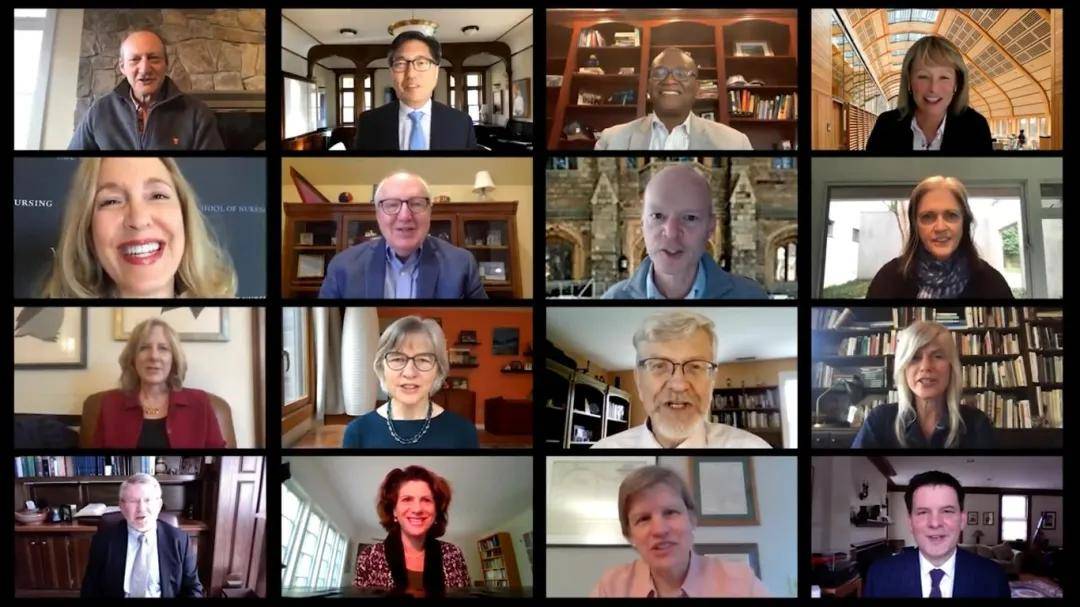这方面的故事,最广为人知的可能要数“好撒玛利亚人”这个寓言了。各位大概都熟悉这个故事:有一个人在路上遭遇了强盗,被打得半死丢在路旁,后来有三个人从此经过,前两个社会地位颇高的人,未加理会就走了;第三个人——一个并不受社会礼遇的撒玛利亚人——停下来施以援手,帮他处理完伤口,扶上自己的驴子,驮到一家旅店,并为他付了费用。他甚至向店主承诺他将回来把这个人所需的额外费用付清。这个撒玛利亚人可谓是这个伤者真正的邻舍,也是这个寓言里预料之外的英雄。(译者注:该故事出自《圣经•新约•路加福音》第10章25-37节)
在我所从事的社会心理学领域,有一个经典的研究,就是借这位撒玛利亚人的故事为出发点。1970年代,两位心理学家做了一项实验,研究人们为什么会提供帮助,或者为什么不提供帮助。他们选择了一群打算将来做牧师的神学院学生,让他们前往附近的一所房子去准备一场布道,主题正是关于撒玛利亚人的寓言。他们把学生分为三组,第一组被告知,他们有足够的时间,不需要赶着过去。第二组被告知,他们需要赶快,否则就会迟到。第三组被告知他们已经晚了,需要赶紧过去。
这样我们就让这些不同的学生出发去准备自己的布道,此时他们脑子里应该在想着那位“好撒玛利亚人”。但在他们去的路上,每个学生都会碰见一个需要帮助的人——当然,都是演员,假装非常不舒服或者受了伤。有的情况下,这个演员躺在人行道上,这群神学院的学生必须迈过他才能通过。研究人员想知道,谁会停下来施以援手?
结果是,没有多少人。认为时间还早的一组中尽管有2/3的人停下来提供帮助,认为时间差不多的一组里只有不到一半的人这样做,最差的是第三组,只有10%的神学院学生停下脚步询问那位受伤的人。也就是说,他们中90%的学生认为,赶紧去准备(关于那位好撒玛利亚人)的布道,比关心一位生病或受伤的陌生人更重要。或许那个寓言的真正教育意义就在于此。正如研究人员所指出的,前面那两个人也许并不是坏人,只不过有更忙的事情要做吧!
我们有多忙呢?忙到都不能成为彼此的邻舍了吗?
起码,在过去几个月中,诸多事情已经发生了改变。面对一场范围惊人的全球大流行病,我们不得不放慢脚步,把自己的生活和期望都加以调整。而且,我相信,关于什么是有意义的,什么是必不可少的,我们看得更清楚了。或许,我们也更能看见我们的邻舍了。
但是在某些方面,我们今天面临着比那位好心的撒玛利亚人或神学院的学生更大的挑战。他们不能帮助但却可以看见他们的邻舍,因为就在他们所经的途中。然而,在努力防控新冠肺炎传播时,我们不得不对那些既不认识,也可能不会见面的人抱着担忧而采取行动。我们不得不考虑那些既非常真实又非常抽象的邻舍。我们被迫重新想象谁是我们的邻舍,以及他们在哪里。
等这场危机结束后,这个教训我希望我们把它记在心里:在行动中,我们必须对我们认识和不认识的邻舍抱着一份迫切的关怀和同情,他们既包括你的街坊,也包括地球另一面的人。
 在津巴布韦遭受干旱影响,农民种不出够吃的粮食
在津巴布韦遭受干旱影响,农民种不出够吃的粮食
因为新冠肺炎不会成为我们必将面对的唯一一场大流行病,也不是你们要解决的唯一一场挑战。是的,将来还会有其他传染性疾病,其他公共卫生的挑战。但是,我也想到了各种不同的流行病。眼下,我们在世界各地的邻舍已经在经受着气候变化的致命影响,他们的生活面临着极端天气事件和海平面上升的威胁。科学家们非常有信心地告诉我们,除非我们采取极端的行动减缓地球变暖,否则这些情况只会进一步恶化。明天我们能挽救多少生命,全看今天我们采取什么行动。
除此之外,还有什么威胁着人类大家庭的健康和福祉呢?世界范围内普遍存在的贫困呢?如病魔一般存在着的不平等呢?我们是该及时采取行动,还是选择视而不见呢?
这些问题我们必须共同来解答。我们的相互依存可以是力量的源泉,但前提是只有我们的目光超越当前的目力所及,只有我们学会如何看见我们的邻舍。
今天,我有信心地说,邻舍和英雄遍布我们的世界。我想到了耶鲁本科学院2019届毕业生Chaney Kalinich,她和我们社区中的其他人一起在纽黑文医疗后备队做志愿者。她一边帮助这座城市里最弱势的群体,一边在耶鲁公共卫生学院完成她的硕士学位,还在帮着研发一个项目,以追踪州内新冠肺炎感染者。

我还想到了一群耶鲁本科学院的在校生,他们成立了一家公司将老年人用手机、平板电脑等设备连接起来,以便他们能够通过电子设备追踪到与医生的约诊。这些学生也在与全国各地的志愿者合作。最近他们向西黑文退伍军人医疗中心的患者交付了一批设备。
在这个城市和地区,无数的人正在引导我们度过这场危机。医护工作者和其他必不可少的工作人员冒着牺牲自身健康和幸福的风险去照顾他人;科学家们加班加点地破解这种疾病;现场应急人员、国民警卫队成员和志愿者们在向有需要的人发放食物。
在我们的校园里,我们杰出的教职员工们也做出了许多改变和牺牲,以确保我们的学生和社区获得最好的收效。

而诸位2020届的毕业生们:在这一史无前例的情境中,你们也表现出对邻舍的关怀,无论远近;你们为保护他人作出了巨大的个人牺牲。
你们放弃了音乐会、演出和大型赛事等重大的时刻;你们错过了面对面的课堂和年终仪式;你们也错过了许多静谧的时刻——一起用餐和对话,与朋友漫步在老校园和教堂街。
然而,在失望和困难面前,你们能不忘学业,坚持发明、想象和创造;你们与朋友和家人紧密相连;你们拒绝孤立、拥抱社区。你们把维系我们作为一所大学和一个人类大家庭的纽带变得更加结实。
今天,我鼓励大家用一种新的眼光来看待那位善良的撒玛利亚人:不是他有多伟大或多令人赞叹,而是他有多普通。生活召唤我们每个人,每个普普通通的人,去做出具有非凡勇气的行动。
这不是普通的时代。世界需要你们每一个人,做好迎接前方任何挑战的准备。你们个个视野开阔,满怀同情,我相信,你们将把耶鲁“光明与真理”的使命传递给咫尺与天涯的邻舍。
Graduates of the Class of 2020, family members, and friends: It is a privilege to be able to speak with you, even in this unusual way. I know you would rather be on campus—and I wish you could be here—but I am glad we can all do our part to reduce the transmission of COVID-19 and stay healthy.
Over the past several months, the novel coronavirus has spread around the globe, infecting millions and claiming far too many lives. It has come to nearly every community; it has come here, to Yale’s doorstep.This crisis has been a wake-up call for all of us. It has stretched health care systems to the breaking point. It has threatened economies, both household and global. And, like many tragedies, it has exposed the vast gulf between the most fortunate and the most vulnerable. Long after the pandemic itself has subsided, we will need to commit ourselves to finding new and creative solutions to these long-term problems.It may be too early to say what we have learned from all of this. But at the least, we see more sharply than before our interdependence as a human community. Our deep levels of connection and need for one another are a weakness that infectious diseases exploit. But our interdependence is also a source of strength and vitality in uncertain times—indeed, all the time.Many of us have found inspiration in the sacrifices of frontline hospital and health care workers; in the commitment of essential staff; and in the contributions of public health experts and legions of volunteers. All around us, we have seen ordinary people transformed into heroes.What does it mean to be called to heroism, to step out of your normal life and do something extraordinary? How do we know if we will respond to such a call?Perhaps the most famous story of this kind is the Parable of the Good Samaritan. You are probably familiar with it: A man is traveling along a road when he is attacked by robbers, who leave him for dead. Three men pass by: the first two, who are men of high standing, ignore the injured man. The third man—a Samaritan, a social outcast—stops to help. He tends to the dying man’s wounds, puts him on his own donkey, and takes him to an inn, where he pays for his stay. He even tells the innkeeper he will come back and pay for anything else the man needs. The Samaritan is a true neighbor to the dying man, and he is the unexpected hero of the parable.One of the classic studies from my field of social psychology takes the Good Samaritan as its jumping off point. In the 1970s, two psychologists conducted an experiment to understand why people help—or don’t. They chose a group of seminary students who were studying to be ministers. The students were told they needed to go to a nearby building to prepare sermons on—what else?—the parable of the Good Samaritan. Then they were divided into three groups. The first group was told they had plenty of time before they needed to be at the other building. The second group was told they needed to hurry, or they would be late. The third group was told they were already late and really needed to hurry.So, we have all these different students on their way to work on their sermons, presumably with the Good Samaritan on their minds. But as they are walking between buildings, each encounters someone needing help—actors, of course, but pretending to be very ill or hurt. In some cases, the actor was lying on the sidewalk, and the seminary students had to physically step around him in order to get by. The researchers wanted to know, who would stop to help?Well, not many. Although two thirds of the people who thought they were early stopped to help, fewer than half of those who were told they were just on time did so. Worst of all, only 10 percent of the seminary students who thought they were late took the time to check on the hurt person. That means 90 percent of those students thought it was more important to rush to work on their sermons—about the Good Samaritan—than to take care of someone who was sick or hurt and alone. Maybe this was the real lesson of the parable. As the researchers pointed out, perhaps the first two men were not bad people; they just had busier schedules!How busy are we? Are we too busy to be neighbors?If nothing else, that much has changed in the past few months. Faced with a global pandemic of staggering scope, we have had to slow down. We have adjusted our lives and our expectations. And—I believe—we have seen a bit more clearly what is meaningful and essential. Perhaps, too, we have seen our neighbors.But in some ways, we face an even greater challenge now than the one the Good Samaritan or the seminary students faced. They couldn’t help but see their neighbors; they were right on their path. But in trying to contain the spread of COVID-19, we have had to act with concern for people we don’t know and may never see. We have had to think about neighbors who are very real, but also very abstract. We have been forced to reimagine who and where our neighbors are.When this crisis is over, this is the lesson I hope we will carry with us: That we must act with urgent concern and compassion for the neighbors we know personally and those we do not; for people down the street, and those on the other side of the globe.For COVID-19 is not the only pandemic we will face; it is not the only challenge you will tackle. Yes, there will be other infectious diseases, other public health challenges. But I am thinking, too, of different kinds of pandemics. Right now, our neighbors around the world are already experiencing the deadly effects of climate change. They are living through extreme weather events and rising sea levels. Scientists tell us with confidence that these conditions will only get worse unless we take drastic action to slow the warming of our planet. The lives we save tomorrow depend on our actions today.What else threatens the health and well-being of the human family? What about the pandemic of poverty, the illness of inequality? Will we act in time, or ignore the problem?These are questions we must answer together. Our interdependence can be a source of strength—but only if we agree to look beyond our immediate line of sight. Only if we learn how to see our neighbors.Today, I can say with confidence that the world is full of neighbors and heroes. I think of Chaney Kalinich, a 2019 graduate of Yale College, who has joined others in our community to volunteer with the New Haven Medical Reserve Corps. Chaney is working with some of the city’s most vulnerable residents while completing her master’s degree at the School of Public Health, where she is helping to develop a program to track COVID-19 cases in the state.I think of a group of current Yale College students who started a company to connect senior citizens with phones, tablets, and other devices so they can keep up with their doctors’ appointments via telemedicine. These students are working with volunteers across the country, and they recently delivered a shipment of devices to patients at the West Haven VA Medical Center.Across this city and region, countless individuals are steering us through this crisis. Health care and other essential workers are risking their own health and wellbeing to care for others. Scientists are working long hours to understand the disease. First responders, members of the National Guard, and volunteers are distributing food to those in need.On this campus, our remarkable staff and faculty members have made so many changes and sacrifices to ensure the best outcomes for our students and this community.And you, members of the Class of 2020: In the midst of unprecedented circumstances, you have demonstrated concern for your neighbors, near and far. You have made great personal sacrifices to protect others.You have given up big moments—recitals, performances, and championship games. You have missed in-person classes and year-end rituals. And you have also missed quieter moments—meals and conversations, walks with friends through Old Campus and down Chapel Street.Yet in the face of disappointment and hardship, you have remained committed to your studies. You have continued to invent, imagine, and create. You have stayed connected with friends and family members. You have rejected isolation in favor of community. You have strengthened the ties that bind us together as a university and as a human family.And today, I encourage you to think of the Good Samaritan in a new light: not how great or amazing he was, but how ordinary he was. Life calls each of us, average human beings, to acts of extraordinary courage.These are no ordinary times. The world needs each of you, prepared to tackle whatever challenges come your way. I am confident that, with eyes open and hearts full of compassion, you will take Yale’s mission of light and truth to neighbors near and far. Members of the Class of 2020:On behalf of the entire Yale community,Faculty, students, staff, and alumni:We salute your accomplishments; we are proud of your achievements.Remember to give thanks for all that has brought you to this day.And go forth with grateful hearts and helpful hands,A world that needs your talents, gifts, and caring spirit,
Congratulations, Class of 2020!
来源:搜狐
"好撒玛利亚人"寓言
在津巴布韦遭受干旱影响,农民种不出够吃的粮食
 點評
點評 微信
微信 微博
微博








